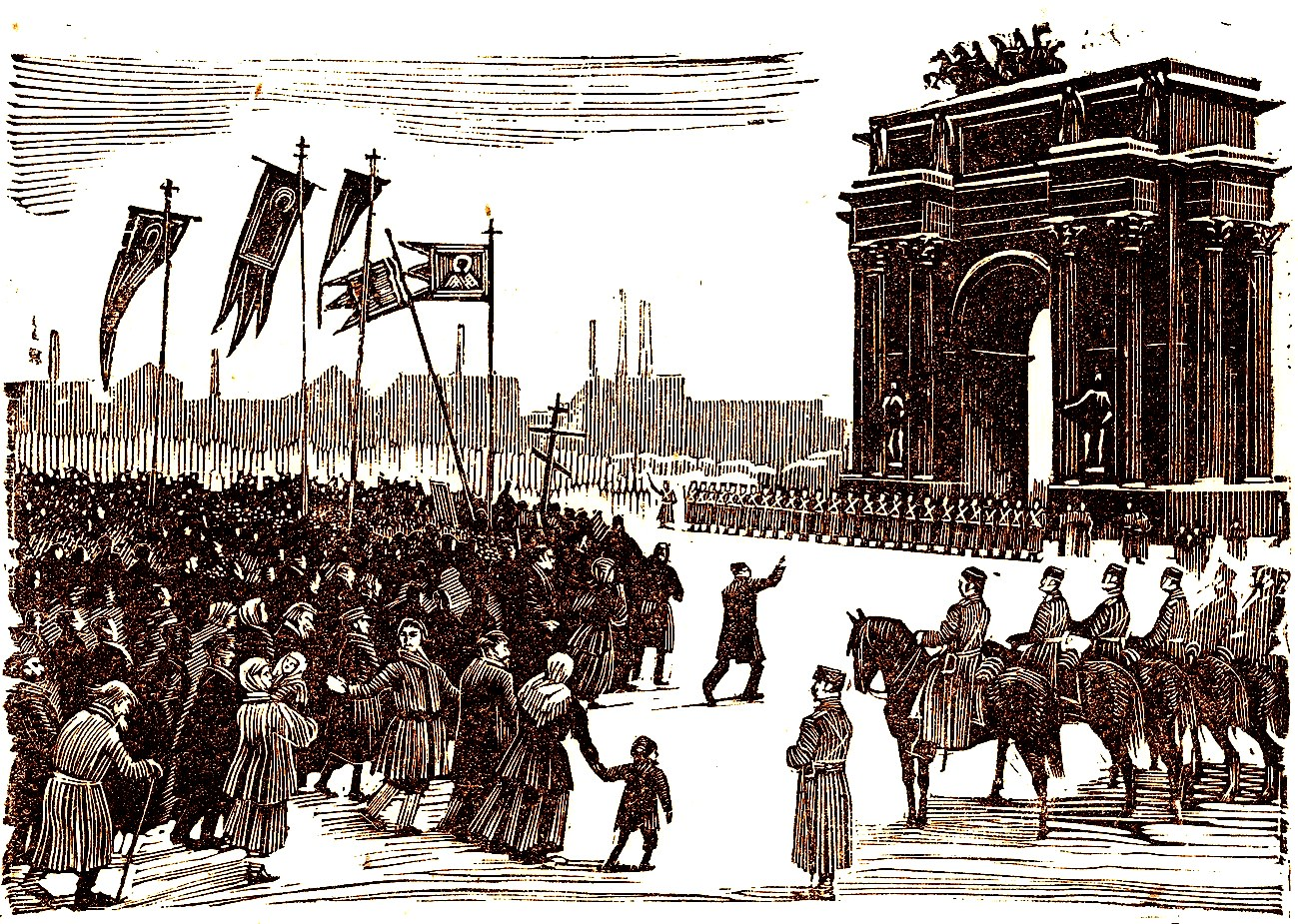The Russian Revolution of 1905, also known as the First Russian Revolution, was a wave of mass political and social unrest that spread through vast areas of the Russian Empire. It included labor strikes, peasant unrest, military mutinies, and the formation of grassroots councils (soviets) of people's power. It is widely felt that the 1905 revolution set the stage for the 1917 Russian Revolutions, and for Bolshevism to emerge as a distinct political movement. Lenin later called it "The Great Dress Rehearsal", without which the "victory of the October Revolution in 1917 would have been impossible".
The 1905 revolution was spurred by the Russian defeat in the Russo-Japanese War, which ended in the same year, but also by the growing realization by a variety of sectors of society of the need for reform in the face of agrarian crisis, economic stagnation, and political repression. However, it is generally felt that the detonator of the insurrection were the events of “Bloody Sunday”, in which a mass demonstration -led by priest and police agent, Georgy Gapon- which had sought to petition the Tsar for relief, was fired upon by the troops, killing hundreds of marchers.
There followed clashes in St. Petersburg, and spreading unrest throughout the rest of the Russian Empire. Strikes spread in three great waves: January, October, and November. In June the crew of the battleship Potemkin famously mutinied against their officers. There were further clashes in St. Petersburg in December.
The rebellion did not overthrow the autocracy, but by late 1905 the Tsar felt obligated by events to agree to constitutional reforms, including the establishment of the State Duma, a multi-party political system, and the Russian Constitution of 1906.
Documents Russian Revolution of 1905
Megathreads and spaces to hang out:
- 📀 Come listen to music and Watch movies with your fellow Hexbears nerd, in Cy.tube
- 💖 Come talk in the New Weekly Queer thread
- 🔥 Read and talk about a current topics in the News Megathread
- 🐱👤 Come talk in the New Weekly PoC thread
reminders:
- 💚 You nerds can join specific comms to see posts about all sorts of topics
- 💙 Hexbear’s algorithm prioritizes comments over upbears
- 💜 Sorting by new you nerd
- 🌈 If you ever want to make your own megathread, you can reserve a spot here nerd
- 🐶 Join the unofficial Hexbear-adjacent Mastodon instance toots.matapacos.dog
Links To Resources (Aid and Theory):
Aid:
Theory:


Based
Sharing those kinds of things with my friends makes me feel so happy. In some sections of society this is common but idk why this is so unacceptable in wider late capitalist society (I mean that rhetorically, historical materialism, nuclear family, inheritance of property, so on, so on)
Have you ever read any of Alexandra Kollontai's work? She was writing about similar ideas back in 1920 in Russia and then the USSR. I've been meaning to make a post about her ideas of "love-comradeship" for a while.
I feel the same way. At least in the queer and queer-adjacent (furry) communities I'm in, people just care a lot less about "traditional" ways of relating to other people since our existence is so contradictory to these standards anyway. Although I guess that's any anti-assimilation queer community. And letting that go can bring a lot to your life. I'm guessing it's the same for you lol.
Yes! "Make way for Winged Eros: A Letter to Working Youth" is probably her most famous essay on the form love (romantic and otherwise) has taken throughout history and what love will look like under socialist society.
If something auditory is more to your liking, Kristen Ghodsee (author of the famous "Why Women Have Better Sex Under Socialism: And Other Arguments for Economic Independence" and many other great books) runs a podcast about the life and work of Alexandra Kollontai called AK47 where she reads these texts. Tbh one of my favorite podcasts ever. She does a great job of placing these works in their historical context as well as discussing the ideas contained within them.